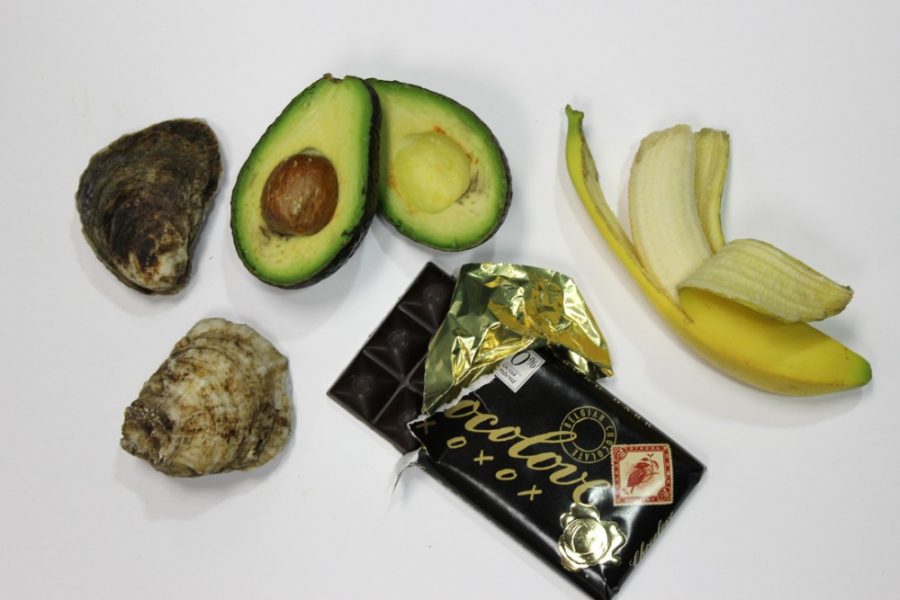Dim the lights, crank “Floetry,” pop the bubbly and fill your undies drawer with scented Glade PlugIns: We’re only days away from the year’s most notorious Hallmark holiday of syrupy love and palpable loneliness known only as Valentine’s Day.
Somewhere between an evening of wining, dining and wooing, it becomes your obligation to produce a night your partner won’t soon forget. If you find your desire for your beloved insufficient after gifting bodega-bought flora and consuming half a box of artisanal chocolates, then some would urge you to consider a naturopathic approach. Enter stage right: aphrodisiacs.
Like many natural remedies, the effectiveness of aphrodisiacs varies. While some claim these modern love elixirs are capable of reducing your heartthrob to a humanesque puddle of carnal ecstasy, others claim their effectiveness holds no validity.
For centuries, people of all walks of life have ingested these antique remedies purported to stimulate sexual desire. They find their roots in ancient civilizations and their namesake extends from Aphrodite, the Greek goddess of sensuality and love. Similarly, according to a 2010 Campus Health Service SexTalk Q&A, the term “horny” is speculated to find its origins in cultures that consumed aphrodisiacs such as ground-up rhino and reindeer horns. While oysters, dark chocolate, strawberries, balut, sea cucumber, Spanish fly, truffles, ginseng, rhino horn and even tiger penis are rumored to put you in the mood, there exists little to no scientific proof to support the validity of such claims. According to a review conducted in 2014 by the U.S. Food and Drug Administration, no alleged aphrodisiac has been proven to be effective.
Though there have been several studies conducted in the arena of aphrodisiacs, actual evidence is weak to support any claims. Janice Swanson of the Mayo Clinic writes that “research has shown [supplements and foods thought to affect libido] to be largely ineffective at producing a sexual response in either men or women.”
A Food Research International review of animal and plant-based aphrodisiacs by John Melnyk and Massimo Marcone did determine that there are promising candidates for sexually enhancing foods. However, “there is not enough evidence to support the widespread use of these substances as effective aphrodisiacs,” and there may be possible hazards to consider due to the “limited number of studies, unclear mechanisms and lack of knowledge regarding potential side effects.”
Lee Ann Hamilton, assistant director of health promotion and preventive services and writer for SexTalk, said certain foods are capable of raising your phenylethylamine levels, but none can do so significantly enough to bear an effect in the bedroom. Similarly, no foods are found to raise your libido enough to make a significant difference.
“There is little evidence that any food or compounds have a significant effect on libido or sexual performance,” Hamilton said. “Of course, alcohol lowers inhibitions, thus causing people to express their desires or fantasies more freely than when they are sober.”
While trying to spice things up in the bedroom, some may turn to supplements claiming to possess sex-enhancing properties, though many of the claims are unsupported and often fraudulent.
“The complexity of hormone interactions, coupled with our own desires and expectations, have stronger influence on sexual behavior than any food or substance [we could ingest],” Hamilton said.
When it comes to getting busy, the strongest sexual tonic isn’t something you can consume. Rather, it’s your own mind. If you believe aphrodisiacs give you that little extra “lift,” then it is likely to be a psychological effect rather than a physiological one.
“Bottom line on aphrodisiacs: If you think something will make you a better lover, it probably will,” Hamilton said.
_______________
Follow Elise McClain on Twitter.









